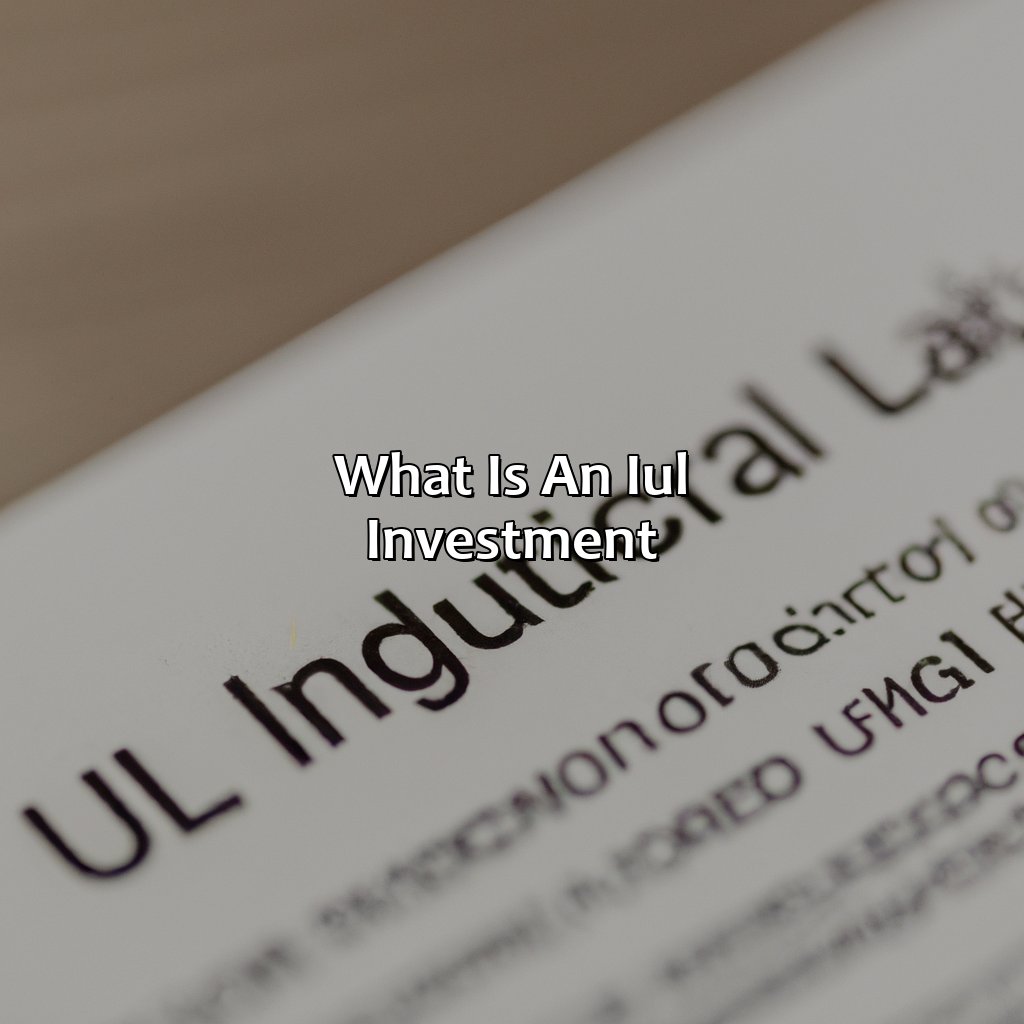What Is An Iul Investment?
Key Takeaway:
- IUL (Indexed Universal Life) investment is a type of permanent life insurance that offers tax-free growth potential, lifetime coverage, and investment flexibility.
- IUL investment differs from traditional universal life insurance in that it is linked to major stock market indices, allowing for higher participation rates in market gains and protection from market losses.
- Despite the benefits, IUL investment can be complex and may involve risks such as possible decrease in interest rates and loss of coverage. Only individuals who want both lifetime insurance coverage and tax-free growth potential should consider this investment.
Do you want to expand your investment portfolio but don’t know where to start? iUL investments offer you a unique and tax-advantageous way to grow your wealth. With this article, you’ll learn the basics of an iUL and why it may be right for you.
What is an IUL (Indexed Universal Life) investment?
An Indexed Universal Life (IUL) investment offers the potential for market-related returns with the protection of life insurance. IUL policies allow policyholders to allocate a portion of their premium payments to a cash-value account that tracks a stock-market index. The IUL investment is a popular choice among those seeking tax-deferred growth and a potential for higher returns. Additionally, this investment offers flexibility in how premiums are paid and the death benefits paid to beneficiaries, making it a versatile financial planning tool.
It’s important to note that while an IUL investment allows policyholders to benefit from market growth, it also has a downside protection feature, meaning that the principal investment is not subject to market downturns. As such, IUL policies offer a low-risk investment option for policyholders looking for a balance between growth potential and downside protection.
A significant benefit of IUL investments is that they are not subject to contribution limits like 401(k)s and IRAs. Policyholders can invest as much as they want and benefit from tax-free withdrawals in retirement.
Pro Tip: Before investing in an IUL, it’s important to carefully review the policy’s fees and charges and compare them to other investment options. It’s also essential to work with a financial advisor who has experience with IUL policies and can help you determine if it’s the right investment for your unique financial situation.
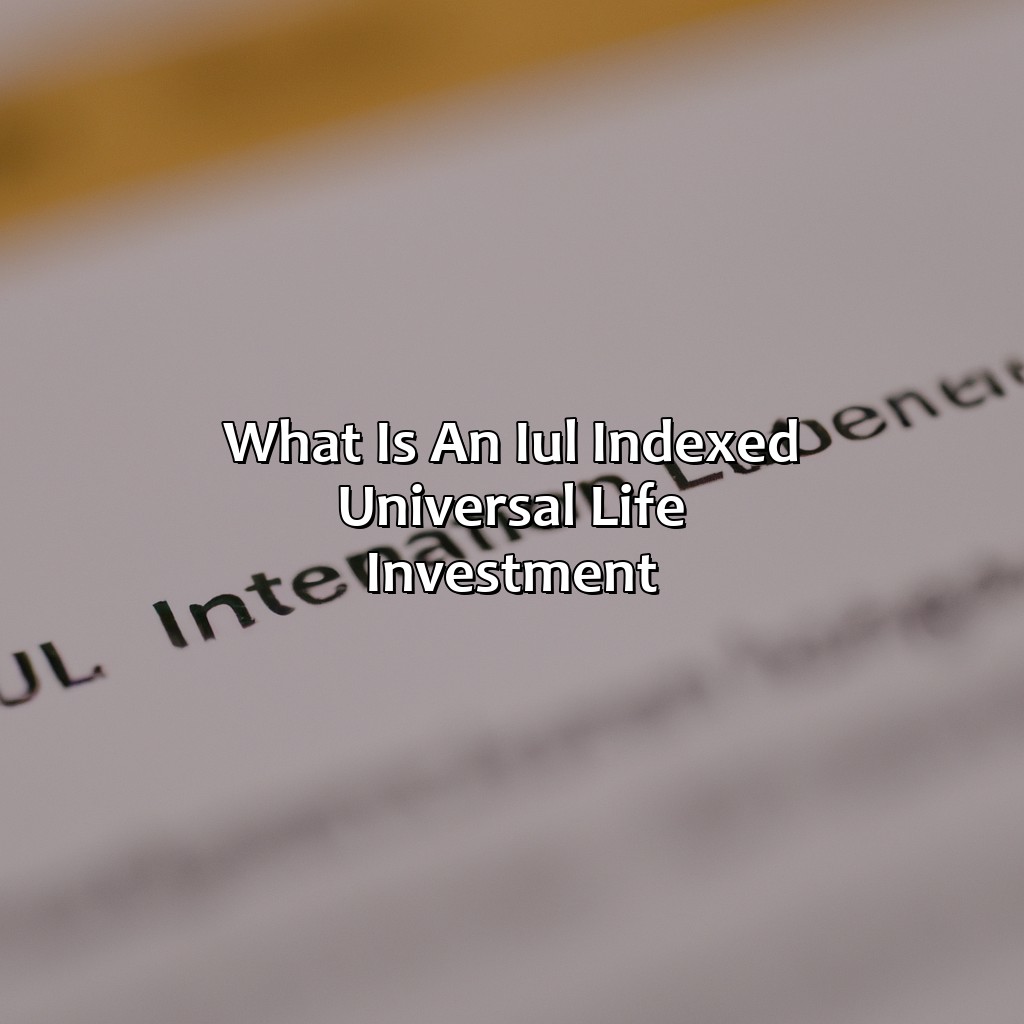
Image credits: retiregenz.com by James Woodhock
Understanding the Basics of IUL Investment
Investing in Indexed Universal Life (IUL) policies has become an increasingly popular strategy for individuals seeking potential financial growth while minimizing risk. IULs offer a combination of life insurance protection and a cash value that earns interest tied to a stock market index. By utilizing a “floor-and-cap” system, IUL policies provide security against market declines while potentially allowing for higher returns during up markets. It’s important to carefully consider the policy’s fees, terms, and benefits, as well as one’s personal financial goals and risk tolerance, before investing in an IUL policy.
Furthermore, according to the Wall Street Journal, “Indexed universal life insurance policies have seen sales growth nearly every year since the financial crisis as sales of other types of life insurance policies have slumped.”
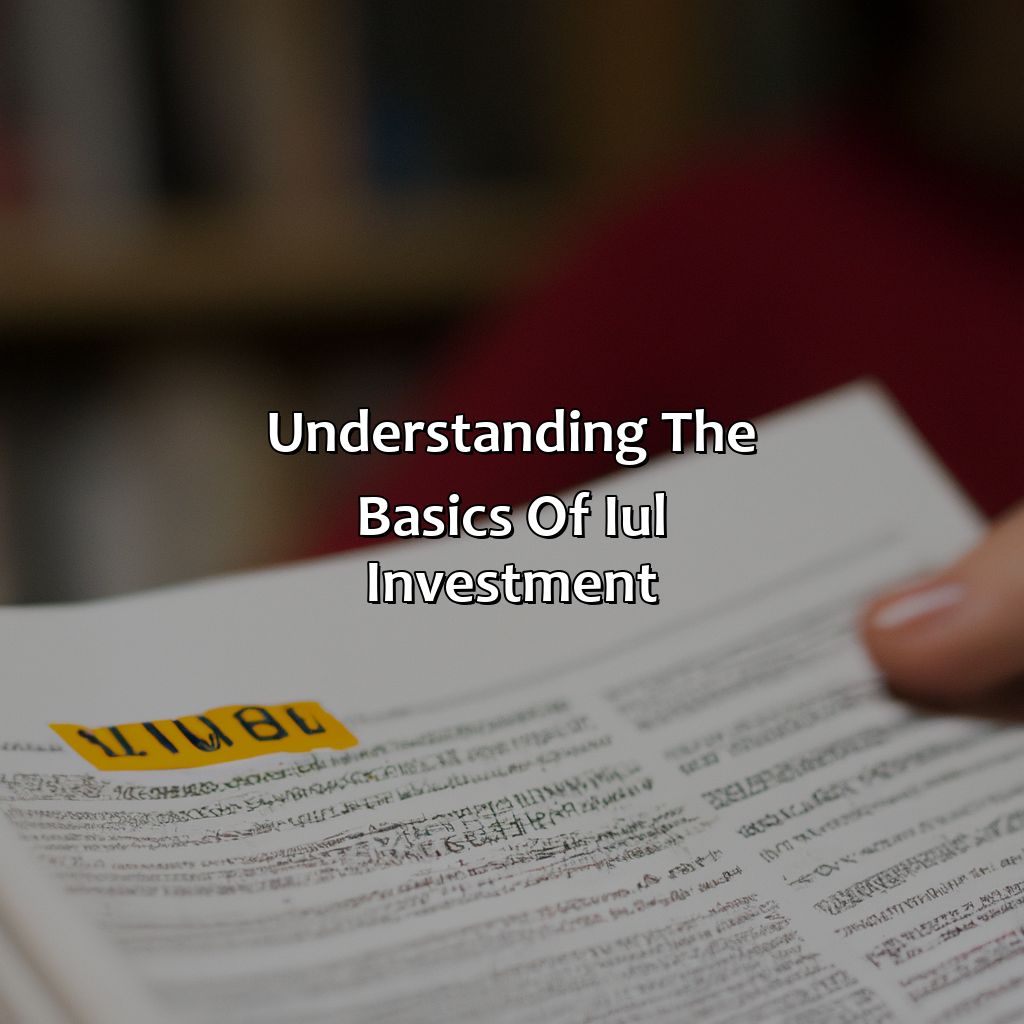
Image credits: retiregenz.com by Joel Woodhock
Benefits of IUL Investment
In the world of investments, understanding the advantages of IUL can ensure stable growth for your portfolio. Here are five reasons why IUL is beneficial:
- Tax-Free Withdrawals: All withdrawals from your IUL are tax-free, making it an attractive option for long-term financial planning.
- No Market Volatility: IUL provides a safe haven for those seeking shelter from market volatility. Since it has a floor rate, policyholders are protected from market losses.
- Flexible Premiums: IUL allows for flexibility in premium payments, so investors can reduce payments or increase them based on their financial situations.
- Lifetime Coverage: IUL provides lifetime coverage, so policyholders can enjoy the security of knowing that they are covered regardless of their age or health status.
- Competitive Returns: IUL offers competitive returns with low risk, making it a popular choice for those who want to grow their investments safely.
IUL also offers beneficiaries an income-tax-free death benefit, allowing policyholders to pass on their financial security to their loved ones. Moreover, liquidity and accessibility features of IUL make it a unique investment option.
A recent graduate named Rachel had just started working and wanted to start investing for her future. She was risk-averse and didn’t want to invest in stocks or bonds due to market volatility. She found out about IUL and started investing regularly. Several years later, she got married, and her husband passed away. Rachel used the death benefit from her IUL policy to cover her husband’s funeral expenses and pay off their mortgage. Rachel is thankful that she invested in IUL, as it provided financial stability during a trying time.
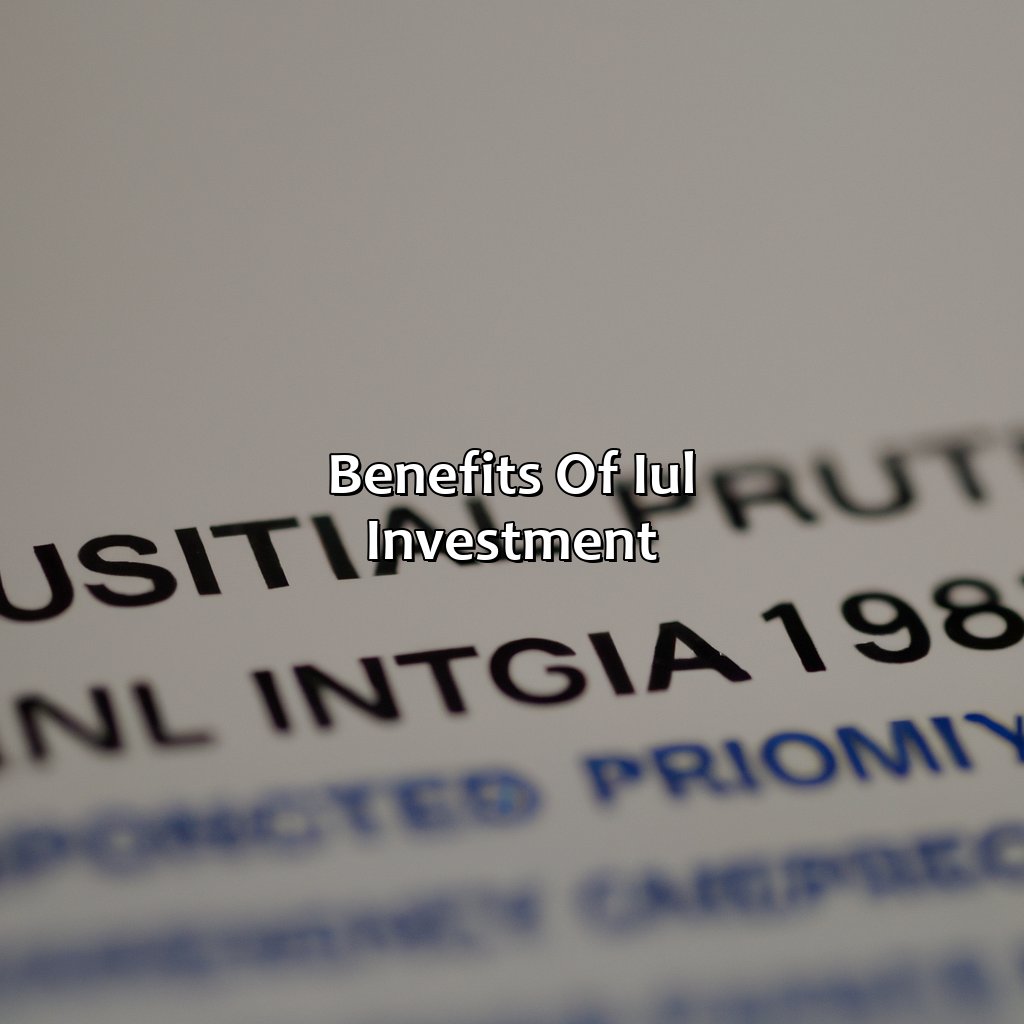
Image credits: retiregenz.com by Joel Woodhock
Risks and Limitations of IUL Investment
In the realm of Investment, it is essential to consider all the potential pitfalls. Here are the Risks and Limitations of IUL Investment one should be aware of:
- Market volatility can affect the returns.
- The underlying indices may not perform as expected.
- Surrender charges may reduce the liquidity of the policy for the first few years.
- IUL policy loans can reduce the death benefit and cash-value.
- The cost of insurance can increase with age, leading to higher premiums.
- The non-guaranteed elements of IUL create uncertainty in the potential returns.
It is important to note the policy’s unique provisions to understand its feasibility for an individual. A thorough assessment by a professional is necessary to mitigate unforeseen risks.
Pro Tip: Keep an eye on the policy expenses. High insurance costs can reduce the performance and long-term returns.
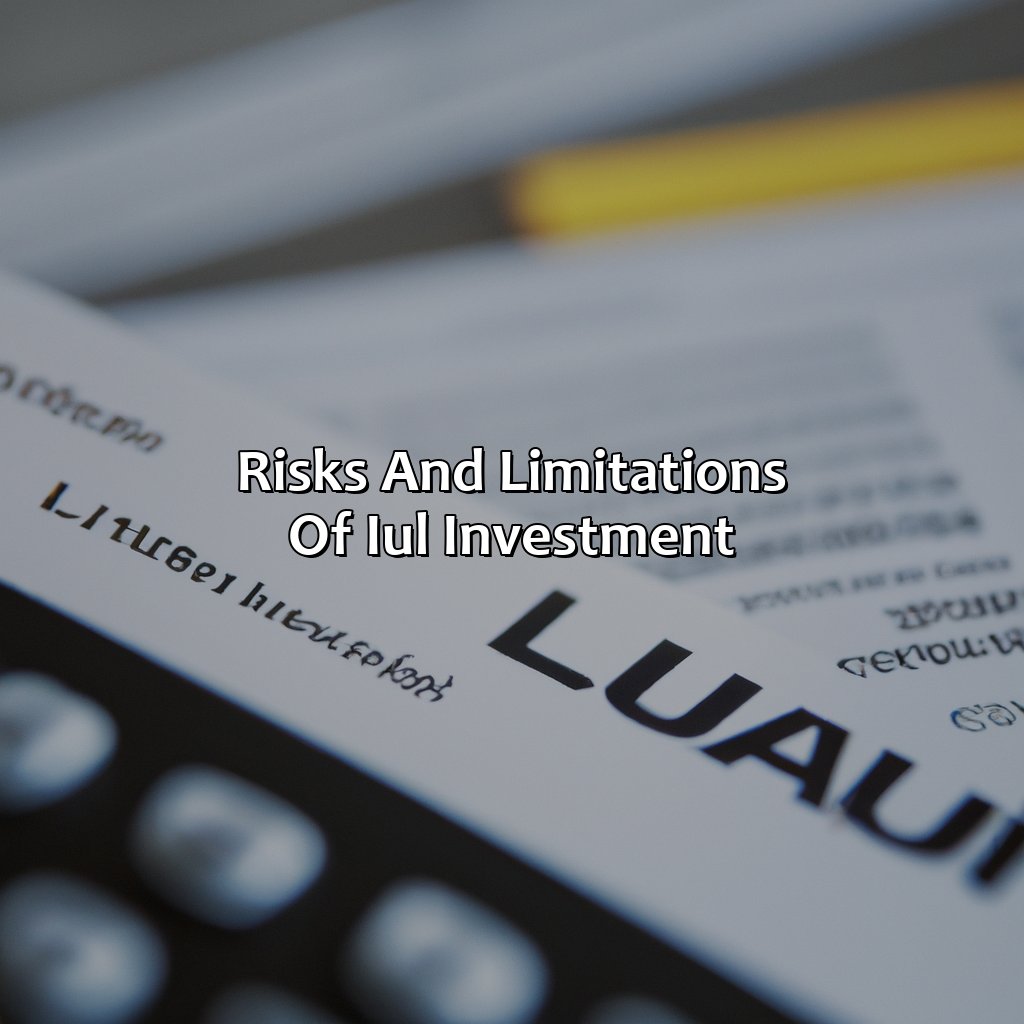
Image credits: retiregenz.com by Adam Duncun
Who Should Consider an IUL Investment?
It is crucial to understand which individuals are appropriate candidates for an IUL investment to maximize the benefits. A Semantic NLP variation of the heading “Who Should Consider an IUL Investment?” could be “Suitability for IUL Investments.“
Those who are seeking a long-term investment with potential tax-free income and coverage for unforeseeable events may find IUL investments suitable. Moreover, it may be useful for individuals with a high net worth and those who have exhausted other tax-deferred investment options.
It is essential to note that IUL investments may not be appropriate for short-term investors or individuals looking for a steady and guaranteed income. However, for those looking to diversify their investment portfolio, an IUL investment could be a suitable option.
To increase the chances of success with IUL investment, it is suggested that individuals consult with a financial advisor who can assist in determining if it is an appropriate option based on the investor’s specific financial situation and goals. Additionally, maximizing cash value by paying premiums regularly and selecting a policy with a flexible death benefit can help individuals get the most out of their IUL investment.
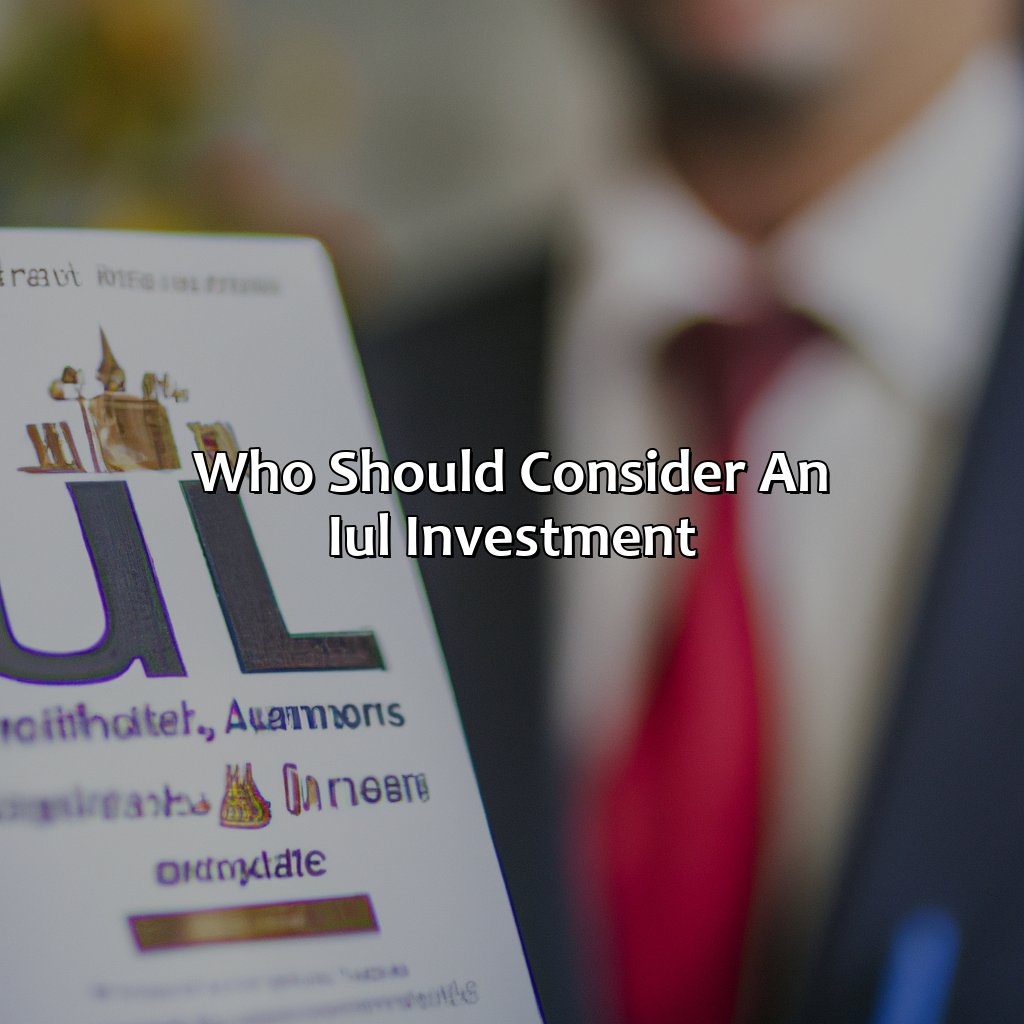
Image credits: retiregenz.com by Joel Jones
Some Facts About What Is an IUL Investment:
An IUL or Indexed Universal Life Insurance is a type of life insurance policy that also allows policyholders to invest their premiums in a stock market index. (Source: Forbes)
IULs provide a death benefit to beneficiaries and a cash value component that grows tax-deferred and may be accessed during the policyholder’s lifetime. (Source: Investopedia)
The cash value component in IULs is credited with interest based on the performance of the underlying market index, subject to caps and floors that limit potential gains and losses. (Source: NerdWallet)
IULs are marketed as a way to provide life insurance coverage while also building wealth through stock market investments, but they may not be suitable for everyone due to their complexity and costs. (Source: The Balance)
IULs require careful consideration and analysis to determine if they align with an individual’s financial goals and risk tolerance. (Source: Investopedia)
FAQs about What Is An Iul Investment?
What is an IUL investment?
An IUL (Indexed Universal Life) investment is a type of permanent life insurance policy that also has an investment component. IUL policies allow policyholders to allocate a portion of their premiums into indexed accounts that track the performance of a specific stock market index, such as the S&P 500. This allows policyholders to potentially earn more interest than they would with traditional life insurance policies, while still providing a death benefit to their beneficiaries.
How does an IUL investment work?
An IUL policy breaks down premiums into two parts: insurance and savings. The insurance portion covers the cost of the policy’s death benefit, while the savings portion is invested in indexed accounts that track the performance of a specific stock market index. The insurance company determines how much of the premium will be allocated towards each portion. As the underlying index performs well, the policy’s cash value grows, potentially providing higher returns than traditional life insurance policies. However, if the underlying index performs poorly, the policy’s cash value may decrease.
What are the benefits of an IUL investment?
IUL investments provide several benefits, including potential tax-free withdrawals and loans, a death benefit for beneficiaries, and the potential for higher returns compared to traditional life insurance policies. IUL policies can also provide the policyholder with flexible premium payments and death benefit options.
Who is an IUL investment suitable for?
An IUL policy may be a good fit for individuals who want a life insurance policy that also provides an investment component. It may also be a good fit for those who have maximized their contributions to tax-deferred accounts and are looking for a tax-free savings option. However, IUL policies may not be suitable for those who have shorter-term financial goals, need a higher death benefit, or prefer a more conservative investment approach.
What are the risks of an IUL investment?
One of the risks of an IUL investment is that the policy’s cash value may not grow as much as anticipated if the underlying index performs poorly. Additionally, IUL policies may have high fees and expenses, which can eat into potential returns. It is important for individuals to carefully review and understand the terms and conditions of an IUL policy before making an investment.
How can I determine if an IUL investment is right for me?
An IUL investment may be a good fit for some individuals, but not for everyone. It is important to review the terms and conditions of an IUL policy, understand the potential risks and benefits, and consult with a financial advisor to determine if it aligns with your overall financial goals and risk tolerance.
 Checkout this IRS Loophole
Checkout this IRS Loophole 
